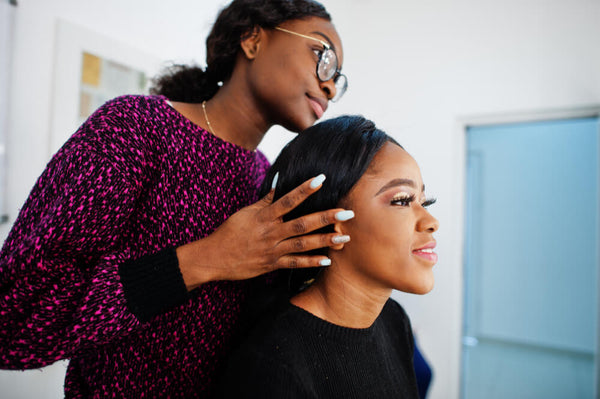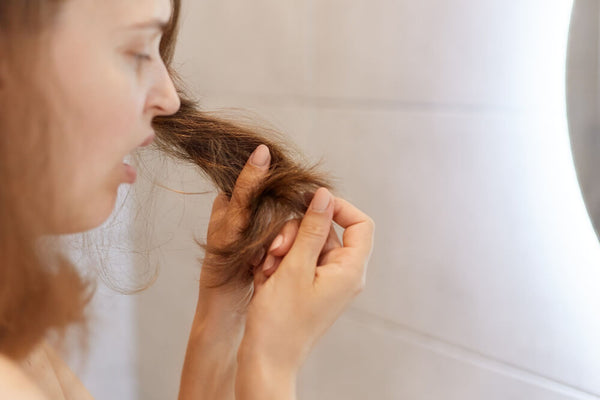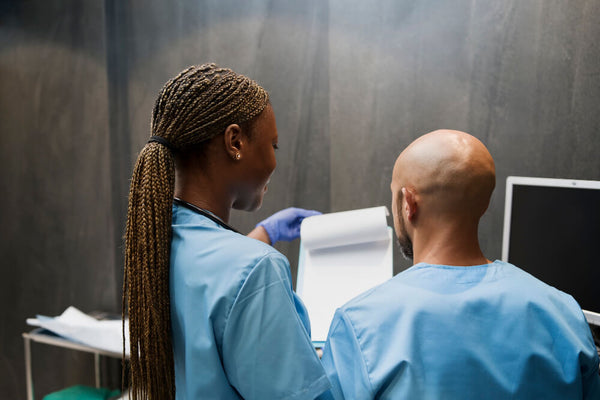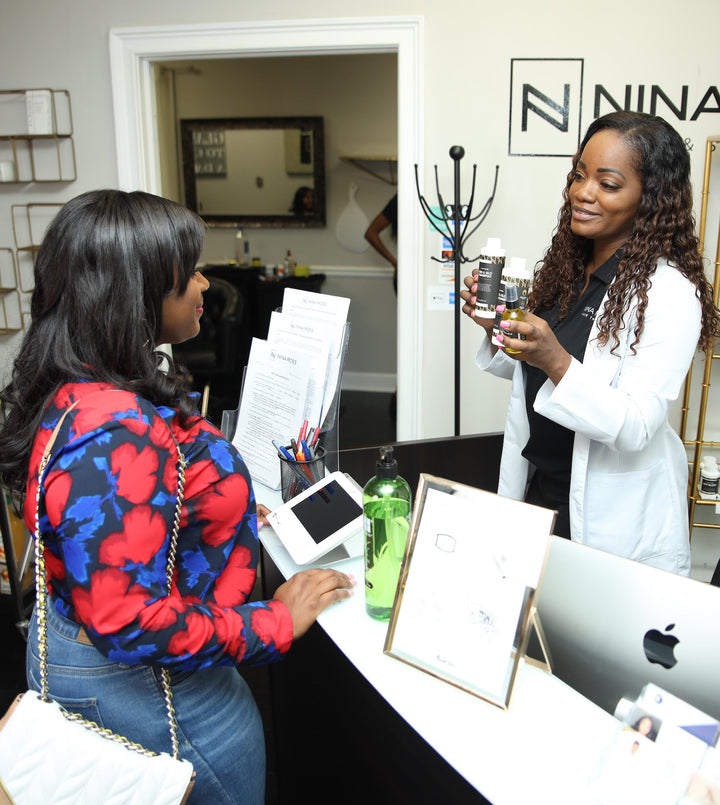I want you to think about the last time you stood in the hair care aisle, completely overwhelmed. So many promises in pretty bottles. So much hope in every serum. And yet, here you are, still struggling with the same thinning, breakage, and frustration.
Here's the truth I've learned from helping hundreds of women in our Atlanta clinic: your hair isn't failing because you're using the wrong products. It's struggling because your body is trying to tell you something.
Your hair is the canary in the coal mine of your health. It's often the first thing to suffer when something inside is out of balance. Let me walk you through what I wish every woman knew about truly healing her hair.

Why Does What You Eat Actually Change Your Hair?
I know you've heard "eat healthy for better hair" a thousand times. But let me show you what that really means when you're dealing with textured hair and hair loss.
Your hair follicles are some of the most metabolically active cells in your body. They need constant fuel. But here's the crucial part: when your body is nutrient-deficient, it prioritizes your vital organs first. Your hair gets whatever's left over—which often isn't much.
The women I see with chronic thinning almost always have deficiencies in these key areas:
-
Iron (ferritin): Your hair's non-negotiable building block. Levels below 50 ng/mL can keep your hair in a constant shedding cycle.
-
Vitamin D: Crucial for waking up dormant follicles. Most Black women are deficient because our melanin protects us from sun absorption.
-
Zinc: The repair mineral that helps rebuild damaged hair tissue.
-
Protein: Your hair is literally made of it. Without enough, your body can't produce new hair strands.
This is why we start with comprehensive testing at our clinic. Guessing at supplements is expensive and ineffective. Knowing exactly what your body lacks? That's how we create real change.

How Does Stress Actually Make Your Hair Fall Out?
"You're too stressed" can feel like such a dismissive thing to hear. But understanding the mechanism helps you fight back.
When you have chronic stress, your body produces cortisol - which is a stress hormone. This stress hormone directly breaks the hair growth cycle directly and thus brings more hair follicles into the shedding phase.. However, what most people don't understand is that stress takes away the same indispensable nutrients that hair needs to grow as well.
The vicious cycle looks like this: stress eats up nutrients → lack of nutrients causes hair loss → hair loss causes more stress.
To get out of this cycle, just "being relaxed more" is not enough. It means:
-
Prioritize Sleep: Your body does its deepest repair work between 10 PM and 2 AM. If you miss this window regularly, it’ll affect hair regeneration.
-
Manage Inflammation: Chronic stress creates inflammation which in turn can trigger some hair conditions like the CCCA.
-
Support Adrenal Health: Your stress glands need specific nutrients to function properly without stealing from your hair's supply.

Can Exercise Really Help Your Hair Grow?
I know—the last thing you want to hear when you're exhausted is "go exercise." But physical exertion and exercise can do something remarkable for hair health that your hair creams simply can't replicate - ever.
When you get your blood pumping, you deliver oxygen and nutrients directly to your scalp. That also moves the lymphatic fluid that carries away inflammatory waste products that clog your follicles.
The key is to find what works for your body. For example, with regular yoga and stretching, you can reduce cortisol levels and with regular walks, you can improve circulation and hormone balance.
You don't need to become a gym rat. Just move in ways that feel good to you.

Why Are Natural Products Better for Thinning Hair?
You have to understand that chemically laden products can also worsen inflammation on sensitive scalps.
Many conventional hair products contain sulfates that strip natural oils and disrupt your scalp's microbiome, silicones that create buildup and clog follicles and alcohols that dry out and break fragile hair.
When you deal with conditions like CCCA or traction alopecia, these ingredients can fuel the inflammation that's already present in your follicles. Switching to cleaner products isn't a luxury—it's a medical necessity for healing.
When Holistic Care Isn't Enough
I need to be honest with you. While lifestyle changes are foundational, they can't reverse everything alone.
If you're dealing with active CCCA with scarring and inflammation or advanced hormonal hair loss or even significant traction alopecia with miniaturized follicles, you need medical intervention.
This is where advanced treatments like PRP therapy and exosome treatments can usually help bring your healthy hair back. They deliver concentrated healing signals directly to your follicles, something even the perfect diet can't accomplish.
The most successful outcomes happen when we combine holistic foundation with targeted medical treatment. Your body needs both the right building materials and the right repair signals.
It’s Time to Treat and Regrow Your Hair Properly
Stop treating your hair as separate from the rest of your health. Your thinning edges and widening part are messages from your body. Book your $99 Hair Therapy Evaluation at Nina Ross Hair Therapy.
Let's run the right tests, listen to what your hair is trying to tell us, and create a plan that addresses the root causes—not just the symptoms.















